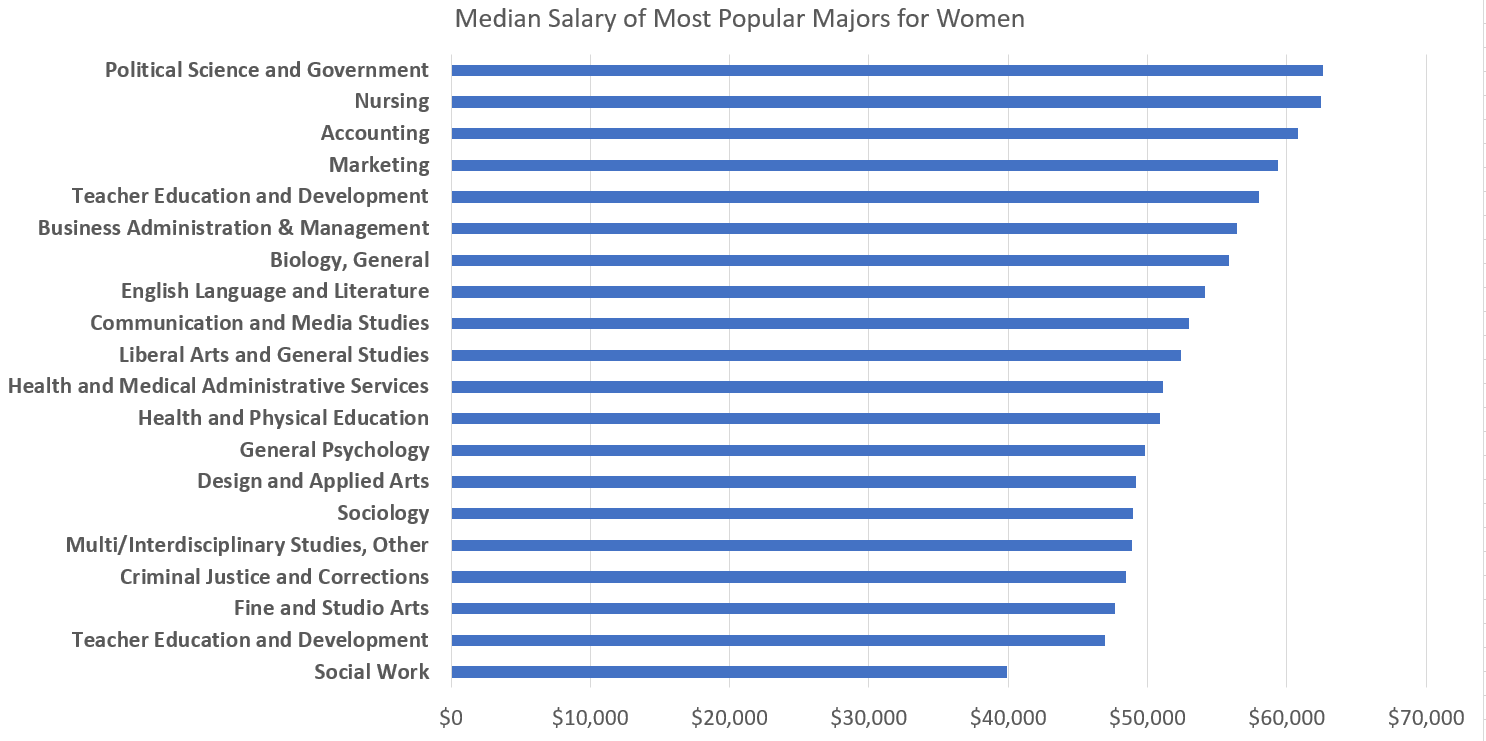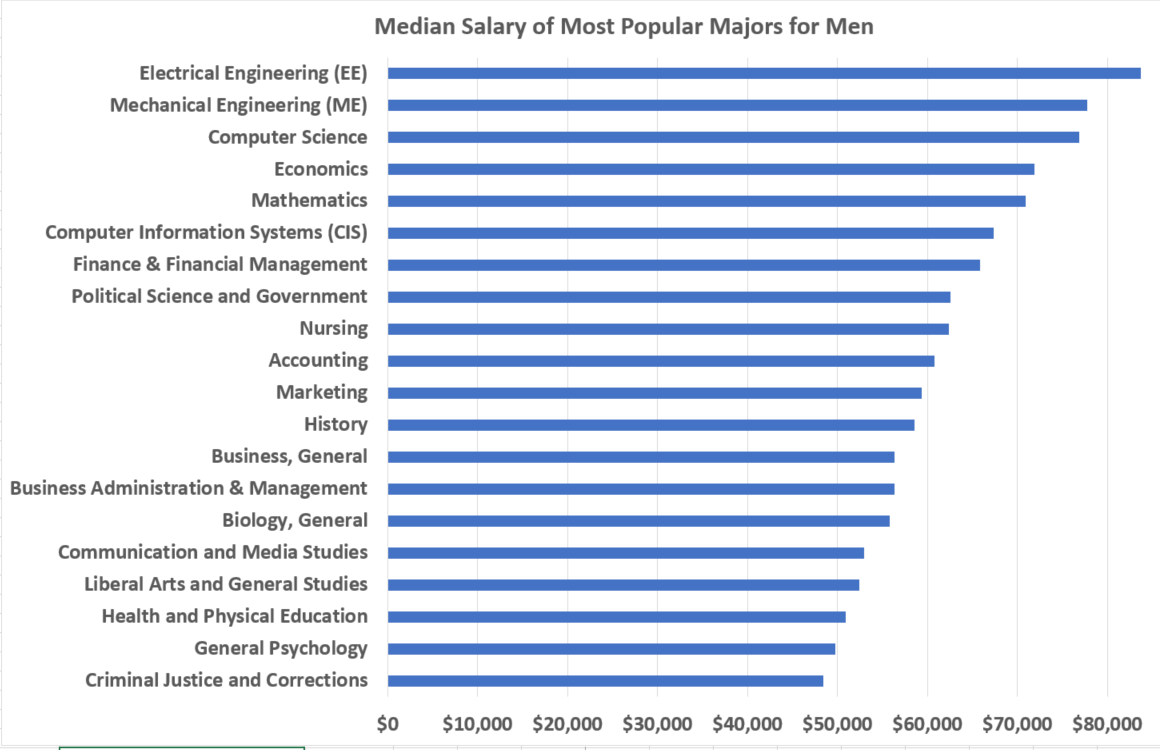When it comes to choice in college major, does your sex have that much to do with it?
It turns out, for some majors, it does.
While some majors are popular for both men and women, some are heavily dominated by one gender or the other.
Below are the top 20 college majors that most women graduate in. Nursing is the heavyweight here, with over 120,000 women graduating with a bachelor's in nursing in 2016. Nursing is also a female-dominated major, with 87% of graduates being women.
Data from the U.S. Department of Education
Which of the 20 most popular majors for women have the best earning potential? That would be Political Science and Government, which is 46% female-dominated, and where grads earn a median salary of $62,600.
Data sourced from the Department of Education and Payscale.
The average salary for the top 20 most popular majors women choose is $52,800.
The Most Popular Degrees for Men
The following chart represents the 20 majors with the largest amounts of men in them (it doesn't necessarily mean the major is male-dominated as more women go to college than men).
As you can see there is some overlap in the lists. Nursing, business administration, biology and psychology are popular with men as well as women,
Data from the Department of Education
Despite the overlap, the average salaries of the most popular for men is higher, mainly due to the presence of more science and math heavy majors appearing on the list.
The median salary for the top 20 most popular majors men choose is $62,060.
This means that the majority of male grads go out of college earning an average of almost $10,000 more than their female peers.
Do women choose lower-paying majors, or is there descrimination against women no matter their choice?
Researchers from Cornell University determined that it is the choice of career that largely determines the differences in pay between men and women. In other words, women dominate jobs that pay less, like early childhood education or social work, while men dominate jobs that tend to pay more.
But is it as simple as getting more women to choose an engineering major over sociology?
Maybe not. Other studies seem to indicate that when more women move into a job field, the pay across the field goes down. Women nurses, doctors, and lawyers, for example, all get paid less than their male counterparts.
Apparently, the trend works both ways. For example, the field of computer programming historically was lower paying when it was dominated by women, and as more men became interested the pay and prestige has increased.
It's always going to be difficult to determine how much of a pay gap is due to gender bias and how much of it is due to difficult-to-measure factors. Do the women in those fields get penalized for taking time off to parent? Do the men in those fields choose niche specializations that pay more, or are they more aggressive in asking for more pay?
How much is a women's choice in a college major and career impacted by the bias she has encountered in her own life, and how much of it is due to natural preferences?
The good news is that despite the difficulties, the gender pay gap has been decreasing steadily. As more women go to college and become educated about what fields will provide the best options hopefully it will continue to decrease.
Do you know which major is the best for you?





